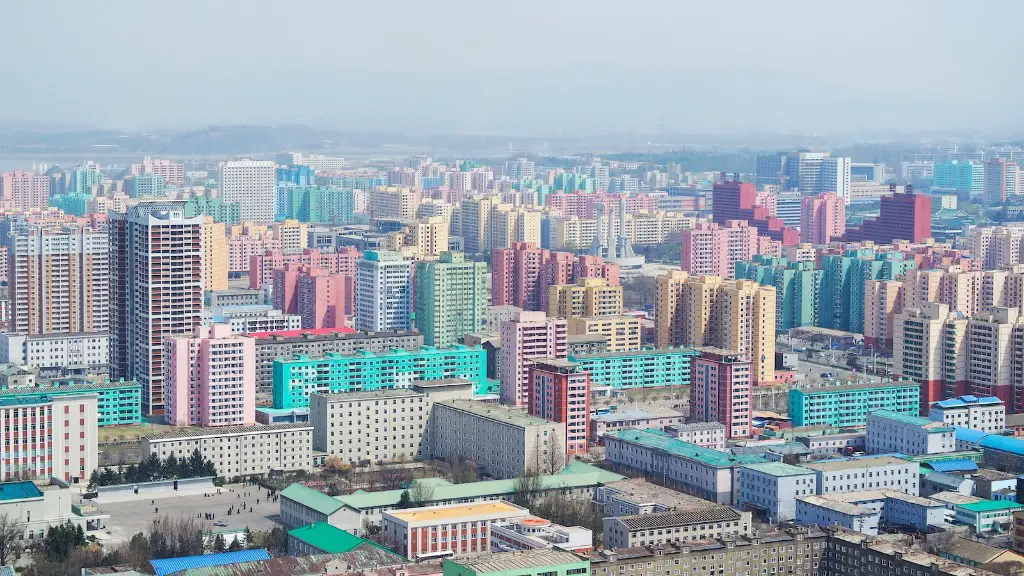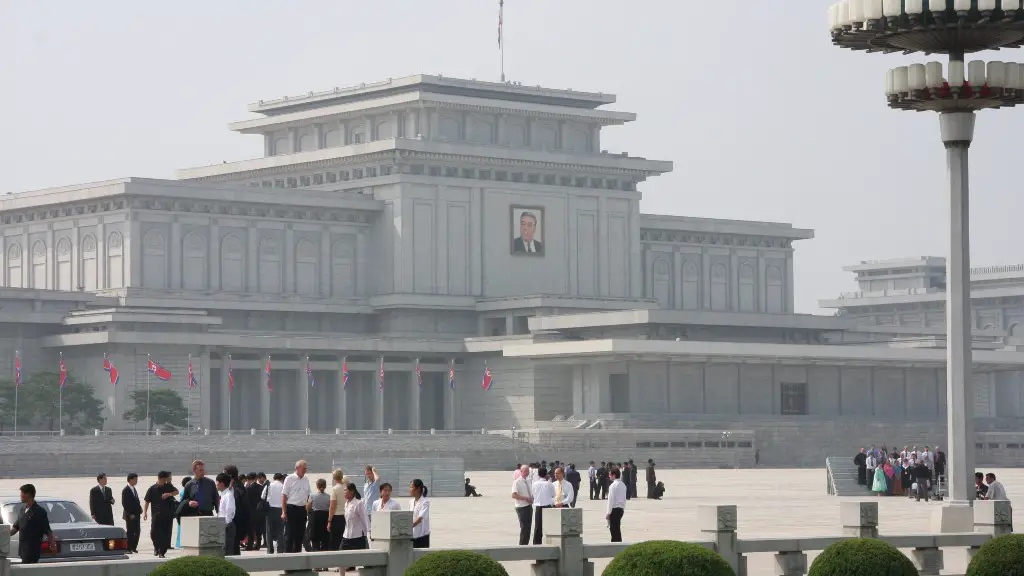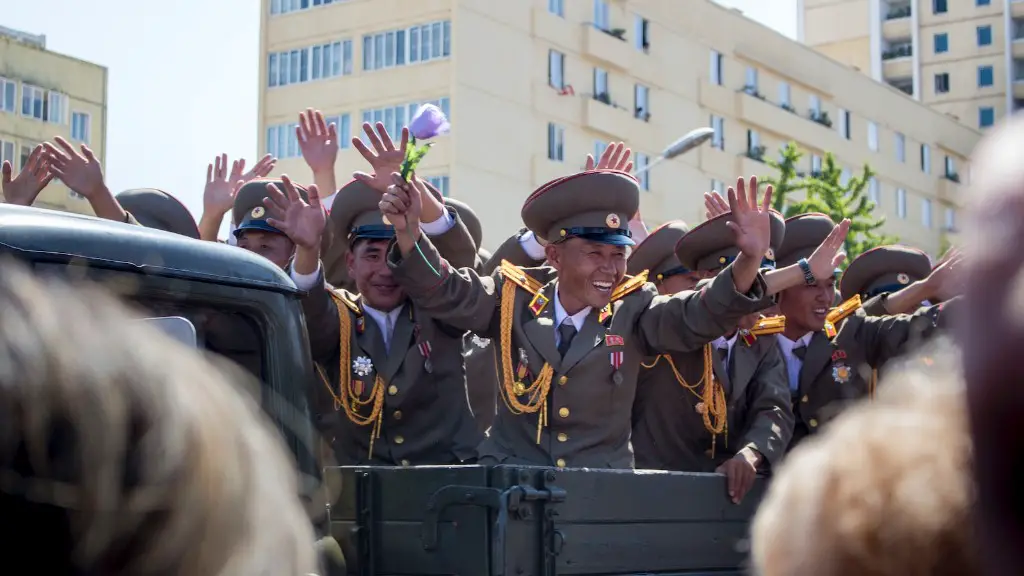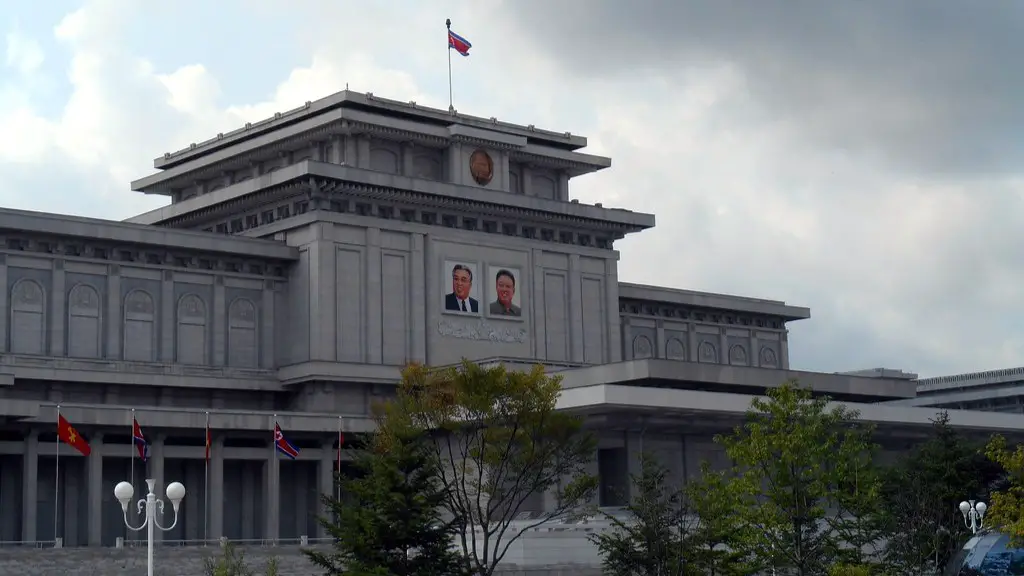North Korea Ambiguity
North Korea’s borders are only partially reopening, leading many to speculate about when the remaining restrictions will be lifted. With limited access for visitors, North Korea has long been shrouded in mystery. What can the world expect from this enigmatic nation?
How North Korea ultimately deals with outsiders is anyone’s guess. Experts have suggested a potential two-track approach to a complete reopening; one for diplomatic relations, the other for tourism. But as North Korea’s leadership remains opaque, the future of the country remains uncertain.
Like other nations, North Korea must make sure their citizens remain safe and healthy. Before reopening their borders fully, they must put protocols in place to ensure imported products and people are properly screened. The World Health Organization (WHO) has been offering ongoing support, providing COVID-19 testing kits and medical protective gear.
Economic growth is another essential factor for North Korea to consider. The country is heavily reliant on foreign aid and trade, with China as its largest trading partner. Any sanctions or retaliatory measures taken by foreign governments could have disastrous consequences.
A transparent approach to governance could improve North Korea’s reputation among the international community, promote tourism, and ultimately help the nation’s economy recover from the pandemic. Increasing transparency would involve publicizing reliable information about their government and economy, as well as reopening their borders to foreign businesses and visitors.
Though the pandemic has tested the world, North Korea’s unusual predicament could be an opportunity to reassess and reinvent relationships. The DPRK’s future and goals remain unclear but its citizens could benefit from a modernized and open society.
Global Impact
The impact of North Korea’s new policy is far-reaching and could shape the landscape of East Asia. Relationships between other regional powers, such as South Korea, China, and the United States, could be affected. However, with the way things are going, it’s uncertain when North Korea will fully open its borders.
Meanwhile, the shifting landscape of global power dynamics is also something to consider. For example, while the United States and North Korea have previously been at odds, president elect Joe Biden has expressed his willingness to engage in diplomatic dialogue. This could be the first step in reviving relations.
The potential for a peaceful, diplomatic solution to the North Korea conflict could restore a sense of stability in the region. But any cooperation must be based on mutual respect. A unilateral approach from any one country is unlikely to be successful in the long run.
Strategic Preparedness
For foreign governments, the best approach to North Korea is to be prepared. Stricter economic sanctions and travel restrictions are one option, but the main focus should be on strengthening diplomatic ties in order to increase the likelihood of peace. Preparation also requires companies in the West to be aware of potential risks when it comes to doing business with North Korea.
As the world waits for North Korea to open its borders, precaution will be key. To ensure the success of any cooperation, multiple countries must work in parallel and cooperate, but with full awareness of the risks involved.
The success of North Korea’s reopening also depends upon informing and engaging citizens both at home and abroad. Preparatory and supportive measures such as public outreach campaigns, social media, and community engagement could help to ensure that everyone is aware of both the progress and issues faced by the nation.
Building Trust
The intricate complexities faced by North Korea require a multi-party, bilateral effort to ensure that any transition is based on mutual trust. For example, while other nations may offer diplomatic solutions and economic assistance to North Korea, it is ultimately the citizens of the country who must trust these solutions and make them viable.
Trust and understanding should not only come from the international community, but also from North Korean leaders. It is essential that the citizens of the nation know that their leaders are working towards a unified goal of a better future. Transparency by North Korea’s leaders must be maintained and citizens’ voices should always be considered.
Most importantly, reopening North Korea should not be viewed as a one-time event but rather a process that requires continuous engagement and trust building. It is only through a mutually beneficial collaboration between North Korea and the international community that true progress can be made.
Public Perception
The public perception of North Korea could also determine the success of its reopening. An array of international media outlets have provided glimpses into North Korea’s culture and politics, but this is often sensationalized, rather than an accurate reflection of what’s really going on in the country.
Education and engagement with citizens of North Korea is crucial to gain a true sense of the nation’s culture. Initiatives such as cultural exchanges and student exchanges could provide great opportunities to explore and connect with North Korea on a personal level and create a much needed mutual understanding.
The global community has the power to create a more unified future, and it begins with recognition of North Korea’s people, culture, and history. North Korea’s citizens need to understand that the world is listening and will stand in solidarity with them in their pursuit of a brighter future.
Final Thoughts
When North Korea reopens, whether it’s for diplomatic ties, business, or tourism, it is essential that the nation take a holistic approach to the process. Safety and health guidelines must be maintained to ensure the well-being of citizens and outsiders alike. The economy must also remain sustainable, which requires a transparent approach to the country’s economic policies.
Finally, it is critical that faith and mutual understanding are fostered between North Korea and the rest of the world. The media has served as a medium through which the world can gain insight into the nation’s culture, but this is only the beginning. Ultimately, in order for North Korea to succeed, it will require a collaborative effort from all parties, starting with building a sense of trust.





